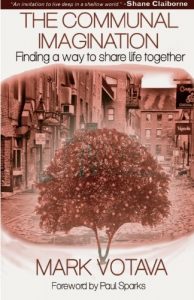Today’s post in the series Hospitality – Opening Doorways to the Kingdom, is written by Mark Votava.
As I have lived at the Tacoma Catholic Worker for the past four years I have learned a lot about hospitality as a way of life together with others. I am learning to share life with people I did not think I had anything in common with. The particular house I live in is called The Guadalupe House and the primary function of its hospitality is proving showers, transitional housing, meals and mail to friends who struggle to have these basics needs met in their everyday lives.
- A weekly liturgy dinner for the poor
We have four meals every week together and on Tuesday nights we do a weekly liturgy dinner for the poor where our friends can come and share their spirituality with others in a nonjudgmental way. A lot of our friends live in shelters, cars or sleep outside. Some of our friends also have houses and apartments too. This is beautiful because it brings the poor and the middle class together in friendship and love.
- Finding the commonalities rather than our differences
At the dinner table everyone is equal as we find our commonalities in realizing that we all need to eat whether we have a lot of money or not. I am eating with folks of different races, languages, classes, ages. This has been so countercultural and beautiful to experience. The lesson I am constantly learning is to find the commonalities with others rather than our differences.
- Using our houses in a hospitable way
The Tacoma Catholic Worker has eight houses all within one block in our neighborhood. It is kind of like an urban village where the poor are welcomed and not shunned. We use our houses in a hospitable way where we live with others anywhere from several months to several years. We give our friends a place to work on their goals of getting income, work, housing, sobriety, reestablishing relationships with children and becoming healthy physically and mentally.
- Providing a refuge for someone struggling with immigration
There is an ICE detention center for immigrants close by and we recently have worked with an organization that helps get others out to work on their immigration. One of the rooms at The Guadalupe House is for someone coming from ICE. It is a blessing to provide a refuge for someone that is struggling with immigration and a new life in this country.
- Seeing Christ in the poor
I am learning so much from the Tacoma Catholic Worker. One thing our community constantly practices is seeing Christ in the poor by our compassion, love and hospitality in everyday life together. I see the Tacoma Catholic Worker as an expression of being the church together in our neighborhood where we live out the works of mercy with others who are hurting and lonely.
- Eating together and showing hospitality could change everything
The simple acts of eating together and showing hospitality in the place we live could change the body of Christ and the world around us. This is the most revolutionary thing I have ever seen and experienced. As I continue on in my journey here, the poor will continually teach me of Christ among us.
How can we practice hospitality as a way of life?


1 comment
[…] Hospitality to the Poor, Oppressed and Marginalized As A Way of Life – Mark Votava […]